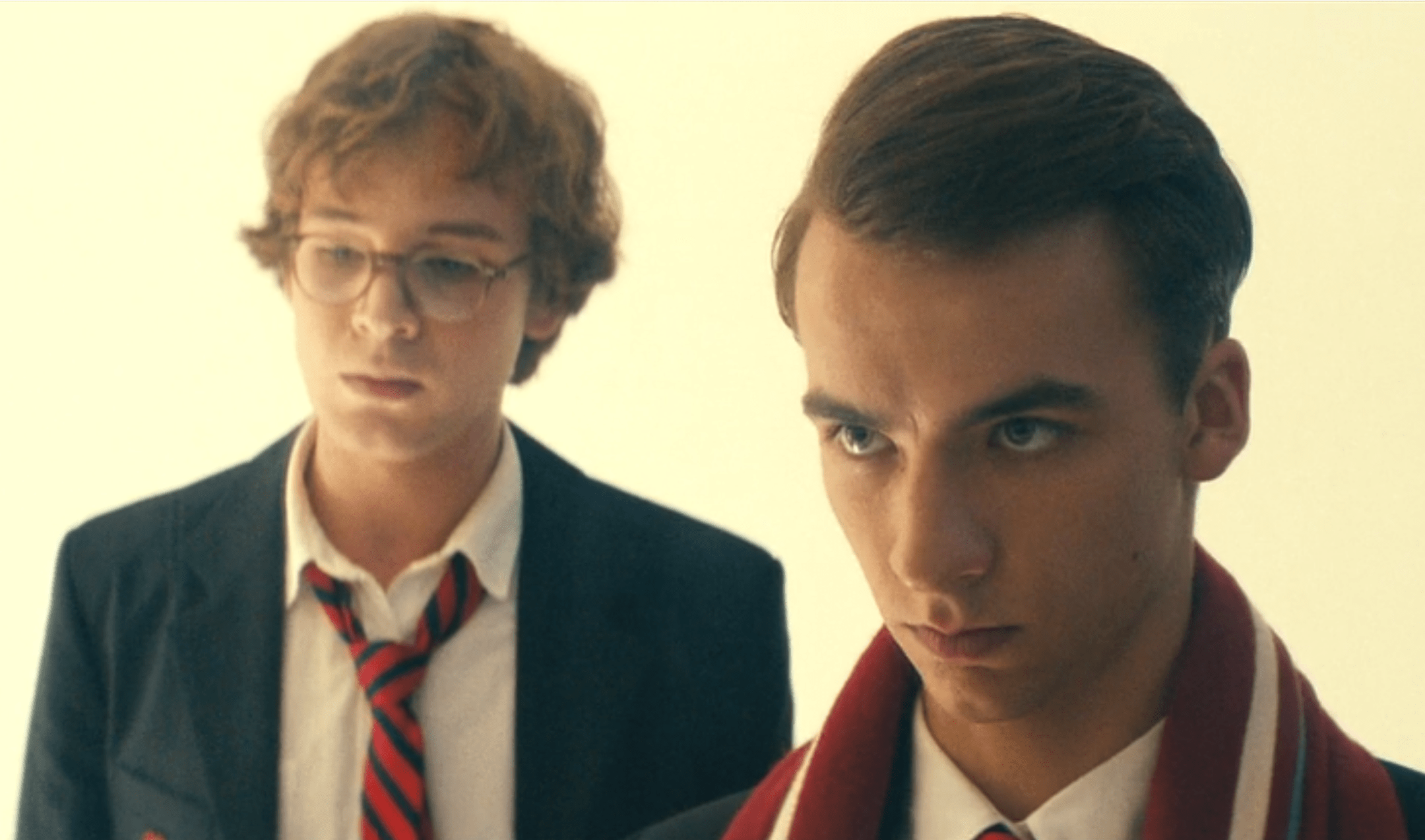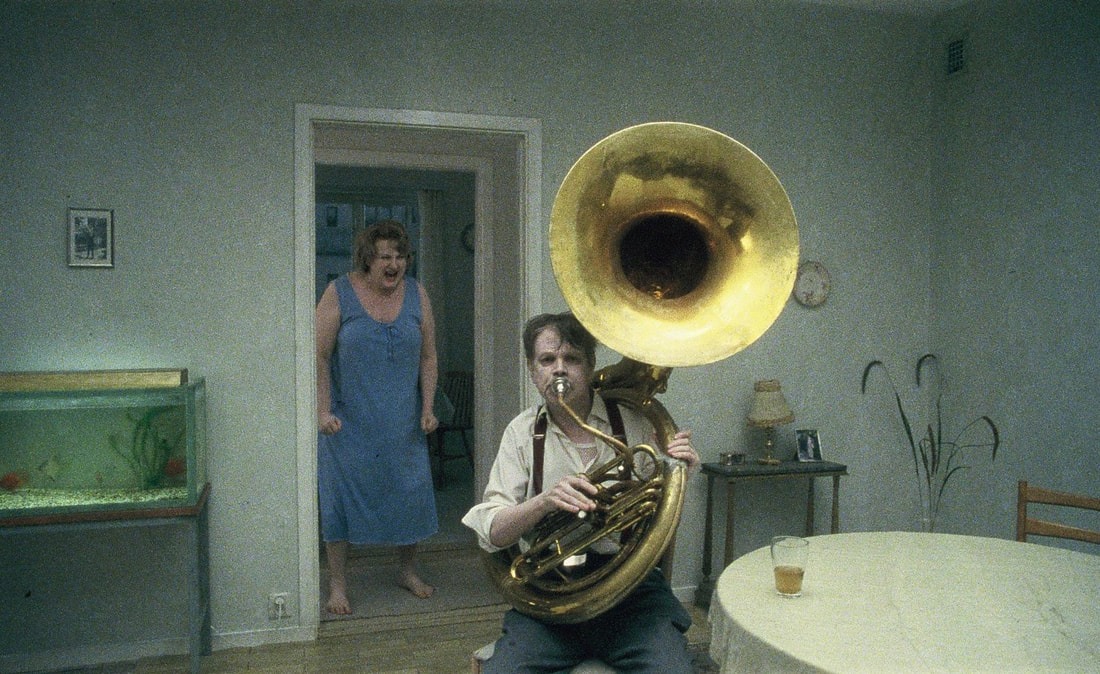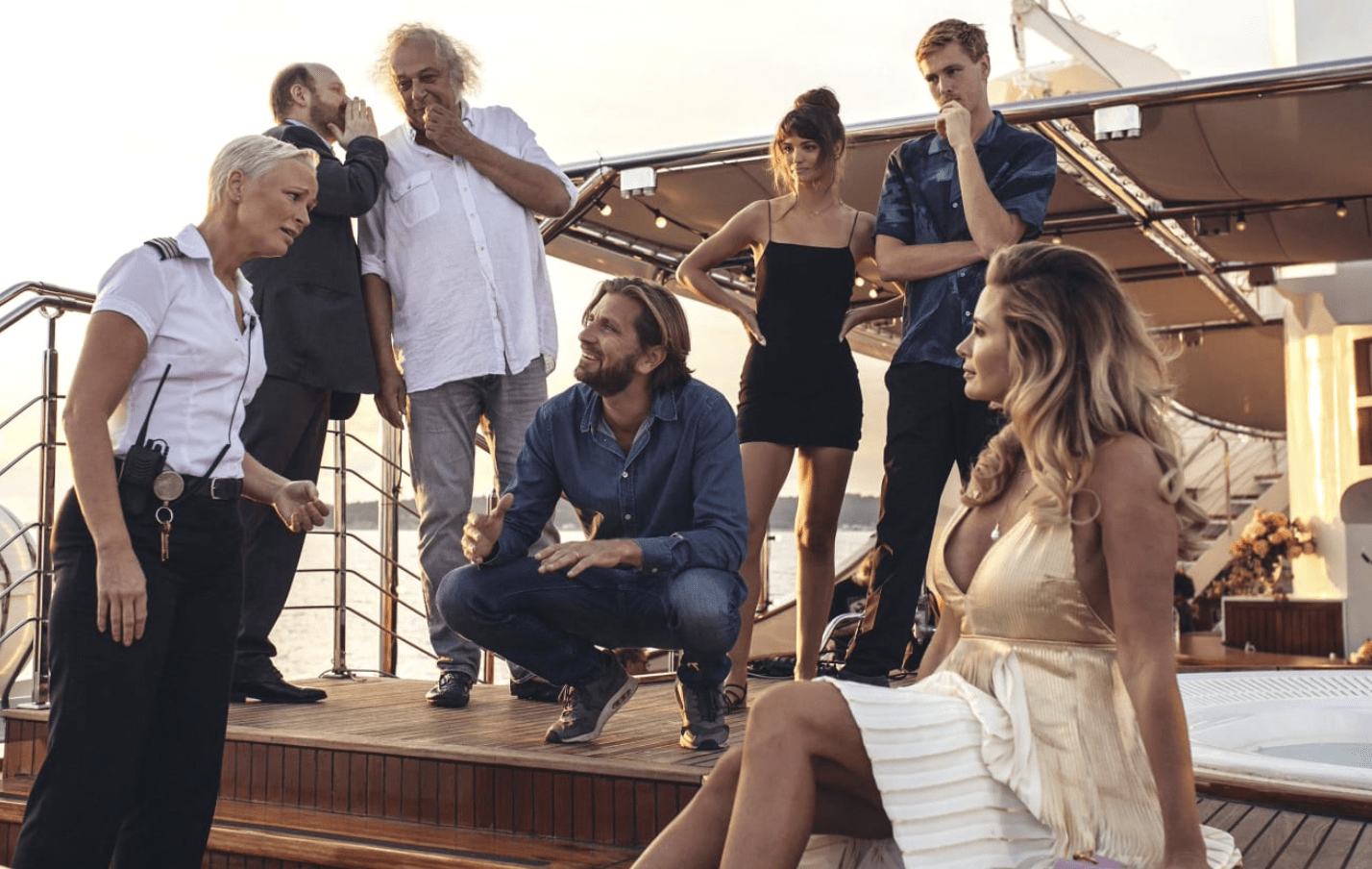
In writing about Pedro Costa’s film Horse Money there is no place to start. The film defies description or analysis. You have to just open yourself to a series of tableaux and vignettes that drift in the darkness. Its easy to sum up the film as a dream, and certainly it shares many qualities with a dream, but more than anything else the film creates its own unique space that can not easily be labeled.
The camera never moves, save one brief pan. There are no zooms, or changes of focus, no motion in any direction. In addition the actors seldom move either. The film is very still, very quiet. There is almost no music save one song and a brief organ piece. The actors are all closely mic’ed and often whisper. The film lulls you into a gentle trance. This sleepy unfolding of images create a calm that prevents the stygian imagery from being menacing. The atmosphere is solemn, nostalgic and tragic but not frightening. Even though this film has all the hall marks of a surrealist movie in both form and content it defies such a straight forward label. There is no shocking juxtaposition, no lurking subconscious. The film never quite reveals where or what it is.
At the beginning we see our main character, Ventura, enter what looks like an underground dungeon. He is wearing pajamas as he walks into the darkness and the bars close behind him. The pajamas have stripes reminiscent of The Nazi death camps. There is an intake interview that sounds very much like something you would encounter in a hospital or possibly an asylum. Later Ventura seems to be approached by people who have died. They converse with him, giving us a feeling that perhaps this is purgatory or hell. It certainly doesn’t seem like heaven. If it is a dream it could be all of these at once. The whole movie surfaces from the shadows, Everything is vignetted in black.
Ventura could be in this place to be tested, rewarded, punished, cured or condemned. The uncertainty Is less disorienting than it is inclusive, all the possibilities create an open play of associations. Often there is very little on screen. By limiting the elements used in the film, everything that is left is imbued with import and mystery. If all we are given is a man and lightbulb we start trying to make connections. For awhile Ventura drags a broken rotary phone behind him like a rattling, little dog.
Watching Horse Money one can’t help but think of Tarkovsky. Costa finds degraded, empty and evocative spaces like the ones seen in Tarkovsky’s Stalker. It's as if the world exists in the past tense, a neglected memory that is disappearing.


Even though Tarkovsky is known for his mobile, gliding camera movement and Costa’s is completely still Horse Money sometimes also feels like The Mirror. There is a timeless quality in both films. They both deal with memory and how it is often tethered to small gestures or events that open a pathway to a story or a scene. In addition both films use language poetically. Stories surface out of characters and hang in the air.


Here is a story recited by Vitalina, a character in Horse Money,
“In Praia, I bought an airplane ticket. On the night of the flight I nearly died. A policeman took me to the stairs of the plane. The air hostess took me by the arms and showed me to my seat. I was burning with fever. The girls sat me down and gave me two big pills. They undressed me. I was left in my nightclothes. Miss Filomena, sitting next to me, helped me to the toilet. I couldn’t pee. Went back to my seat. Had to pee again, she took me back to the toilet. The pee kept coming. She had to ask for nappies from the girls. I arrived in Portugal with a burning fever, soaked, freezing.”
This story could be a memory of something real or something dreamt. It could be a confession, it could be an appeal for sympathy. Its not clear who she is talking to. Some of the stories that Costa uses are actually taken from real life interviews with Cape Verdean immigrants who are his main subject and concern in most of his films. This particular story is delivered by a woman in a pool of black with windows in the distance emitting light from an unseen facade.

For a film that wanders though such loosely associated images and dialogue Horse Money manages to convey potent social and political messages. Costa is Portuguese but comes from Cape Verde, a cluster of small island off the west coast of Africa. His films revolve around his fellow immigrants. Both their experiences from back home and in their new country. The characters appear like apparitions presenting themselves to the viewer or to Ventura. They give us their official information as if they are being processed. They tell us their name, address, age, and occupation.
The characters are vulnerable inside this place. Ventura has a pronounced tremor in his hands, and he walks as if he is in pain. Sometimes he is dressed only in his underwear. Almost naked, he looks fragile and old. All the characters reveal themselves as they articulate their memories. They seem tenuous and temporary. Characters slowly approach us from far off, surfacing from the out of focus distance. They present themselves to the camera to testify.
Horse Money is a visually beautiful film. The textures and shadows create a lush sense of place. The sound of footsteps, crunching gravel, and whispering voices gives everything a tactile presence. I have never seen a movie like Horse Money. Watching it transports you deep into a quiet and intimate place where nothing is fully present. It is a mixture of memories, dreams, and loss. When it was over I found that I had been transported a great distance away from my everyday reality. I had to find my way back as if I was trying to shake off the effects of a trance.

If you enjoyed this article click here for more
www.filmofileshideout.com/archives/gorod-zero-hidden-soviet-era-gem



